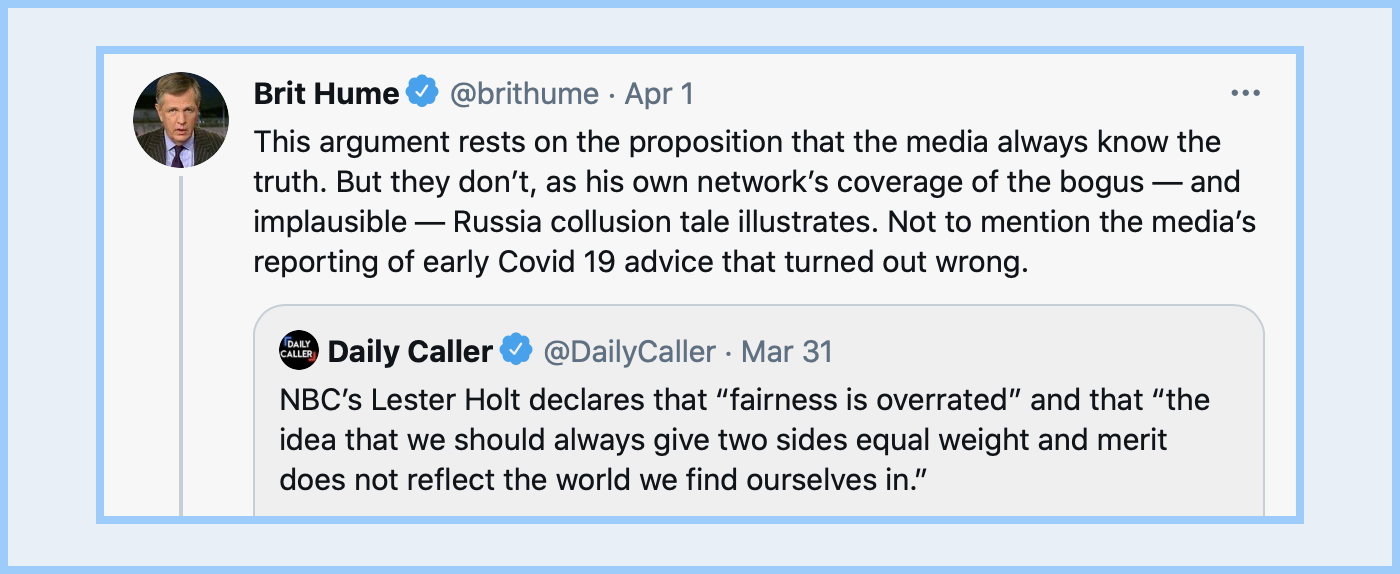Kerby Anderson
Lester Holt (NBC anchor) recently explained to his audience that “fairness is overrated.” He argued that the “idea that we should always give two sides equal weight and merit does not reflect the world we find ourselves in.”
The example he used is certainly one that everyone would accept. “That the sun sets in the west is a fact. Any contrary view does not deserve our time and attention. But he went on to expand this trivial example to larger issues. Decisions to not give unsupported arguments equal time are not a dereliction of journalistic responsibility or some kind of agenda. In fact, it’s just the opposite.”
This claim by Lester Holt was too much for Brit Hume (who has spent decades with ABC News and Fox News). On Twitter he observed, “This argument rests on the proposition that the media always know the truth. But they don’t, as his own network’s coverage of the bogus – and implausible – Russia collusion tale illustrates. Not to mention the media’s reporting of early Covid 19 advice that turned out wrong.”
In his second Twitter post he acknowledged that “if one side says the White House is made of powdered milk, and the other disagrees, we can safely ignore the milk claim. But political disputes are rarely so cut and dried. So we report what both sides are saying and let viewers and readers make up their own minds.”
We can all agree that we don’t need to provide an alternative viewpoint on whether the sun sets in the west or whether the White House is made of powdered milk. But the argument being used by the major media in this country is that viewers and readers do not need to see or hear an alternative view on issues ranging from the pandemic lockdowns to climate change. They believe fairness has been overrated, and that’s why they frequently ignore important perspectives that don’t fit their narrative.
 Listen Online
Listen Online Watch Online
Watch Online Find a Station in Your Area
Find a Station in Your Area










 Listen Now
Listen Now Watch Online
Watch Online
